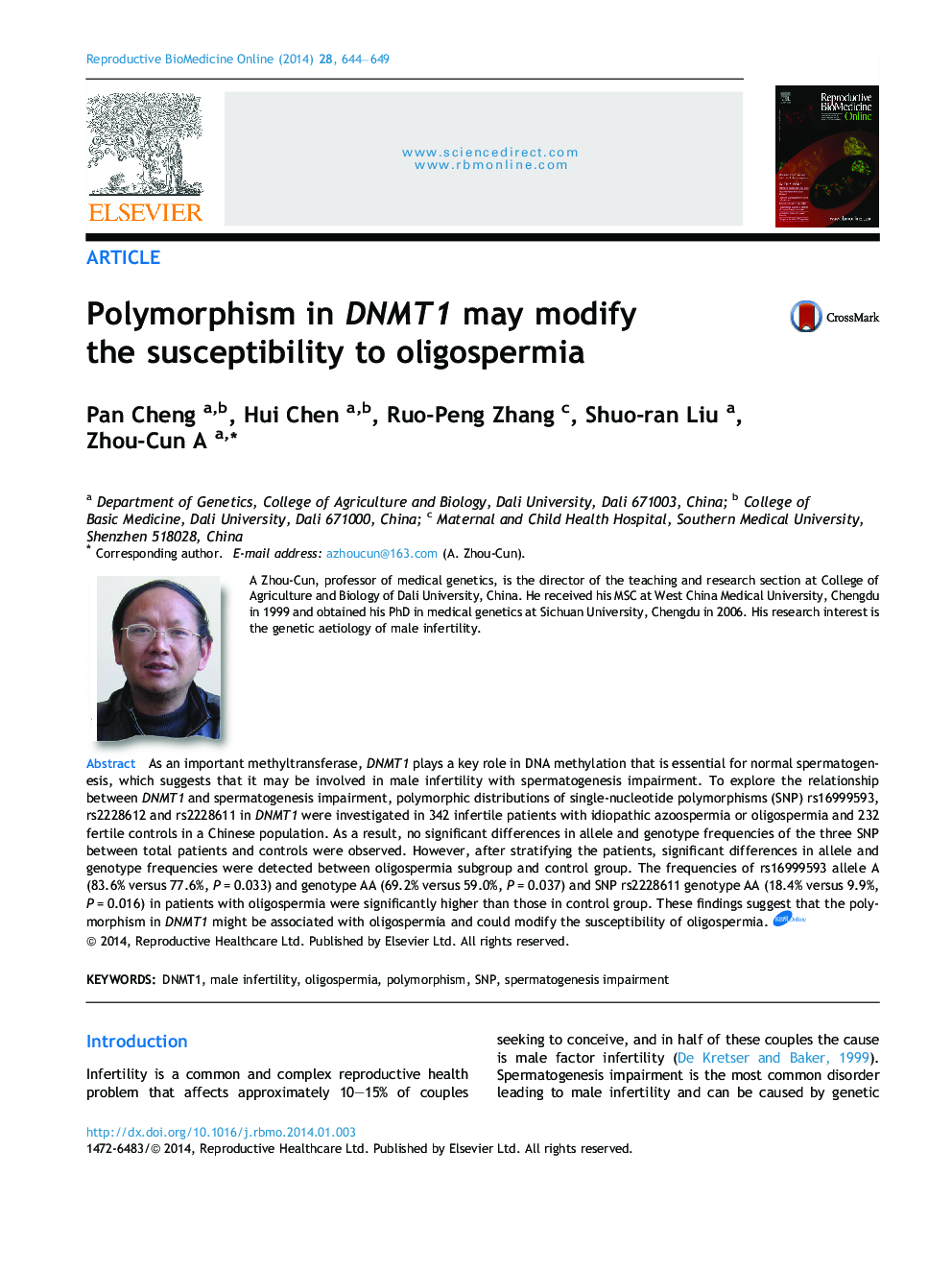| Article ID | Journal | Published Year | Pages | File Type |
|---|---|---|---|---|
| 6189053 | Reproductive BioMedicine Online | 2014 | 6 Pages |
As an important methyltransferase, DNMT1 plays a key role in DNA methylation that is essential for normal spermatogenesis, which suggests that it may be involved in male infertility with spermatogenesis impairment. To explore the relationship between DNMT1 and spermatogenesis impairment, polymorphic distributions of single-nucleotide polymorphisms (SNP) rs16999593, rs2228612 and rs2228611 in DNMT1 were investigated in 342 infertile patients with idiopathic azoospermia or oligospermia and 232 fertile controls in a Chinese population. As a result, no significant differences in allele and genotype frequencies of the three SNP between total patients and controls were observed. However, after stratifying the patients, significant differences in allele and genotype frequencies were detected between oligospermia subgroup and control group. The frequencies of rs16999593 allele A (83.6% versus 77.6%, PÂ =Â 0.033) and genotype AA (69.2% versus 59.0%, PÂ =Â 0.037) and SNP rs2228611 genotype AA (18.4% versus 9.9%, PÂ =Â 0.016) in patients with oligospermia were significantly higher than those in control group. These findings suggest that the polymorphism in DNMT1 might be associated with oligospermia and could modify the susceptibility of oligospermia.The DNMT1 gene plays a key role in DNA methylation, which is essential for normal spermatogenesis, and it may be involved in male infertility with spermatogenesis impairment. To explore the possible relationship between DNMT1 and spermatogenesis impairment, polymorphic distributions of the single-nucleotide polymorphisms (SNP) rs16999593, rs2228612 and rs2228611 in DNMT1 were investigated in 342 infertile patients with idiopathic azoospermia or oligospermia and 232 fertile controls in a Chinese population. As a result, the frequencies of allele A and genotype AA of SNP rs6999593 and of genotype AA of SNP rs2228611 were significantly higher in patients with oligospermia than in controls. These findings suggest that the polymorphism of DNMT1 might be associated with oligospermia and could modify the susceptibility of oligospermia.
